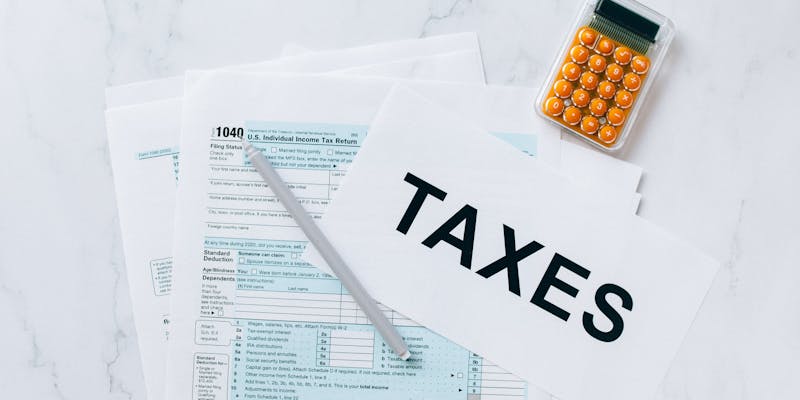Whether you are new to investing or not, you are probably familiar with dividends. A public company may pay a dividend to its shareholders either in cash or as additional shares, which is known as an equity dividend. Dividend stocks are attractive to investors for a variety of reasons: First, they generally pay out quarterly, making them a relatively reliable source of income. Secondly, the financial strength and stability of a company that pays dividends are generally considered to be greater. Well, this is just the basic meaning let's discuss the details.
What Is a Dividend?
Dividends are payments made by a company to share its profits with its shareholders. They provide shareholders with a regular return on their investment. It can be cash or some extra shares. Dividends of this type are referred to as stock dividends.
Dividend yield refers to the amount of the dividend a company pays per year divided by its stock price at a particular point in time. Dividend yields are used by investors in order to determine whether dividend stocks are worth investing in. In addition, dividend payout ratios provide an indication of how much of the company's income is directed toward dividends rather than reinvestment.
However, not every stock pays dividends. You should specifically choose dividend stocks if you intend to invest in dividends. Dividend-paying companies are generally less volatile than the broad market as a whole. A stock's total return may also be increased by the regular income it receives from dividends.

How Does a Dividend Work?
Dividends must be approved by shareholders through their voting rights. Even though cash dividends are commonly given to shareholders, they are also sometimes issued as shares of stock. Dividends are also paid by numerous mutual funds and exchange-traded funds (ETFs).
Dividends are the rewards paid to shareholders in connection with their investments in a company's equity and are usually based on the company's profits. Dividends are viewed as an asset by investors, but a liability by the company. While a company can retain profits for use in its ongoing and future business activities, a portion of them can be distributed as dividends to its shareholders.
Even if a company does not make sufficient profits to maintain its established dividend track record, it may still be able to pay dividends.
A corporation's board of directors has the option of issuing dividends over a variety of periods and at various rates. People receive dividends on a regular basis, such as monthly, quarterly, or annually. For your reference the Wal-Mart Inc. and Unilever pay quarterly dividends.
Companies That Pay Dividends
Dividend payments are usually made by large, established companies with predictable profits, and the following industries have a track record of paying dividends regularly:
- Basic materials
- The oil and gas industry
- Financial institutions and banks
- Pharmaceuticals and healthcare sector
- The utility sector
Master limited partnerships and real estate investment trusts have specific distribution requirements for shareholders. It is also possible for investment funds to issue regular dividend payments based on their investment objectives.
Currently, most startups, including those in the technology and biotechnology sectors, do not offer regular dividends since they are still developing. As a result, the company can keep earnings for research and development, business expansion, and operational purposes.
Important Dividend Dates
In determining which shareholders qualify to receive dividends, the associated dates play a critical role.
- Date of announcement. Management announces dividends on the announcement date (or declaration date) and must receive shareholder approval before they can be paid.
- Date of ex-dividend. An ex-dividend date, or simply the ex-date, is the date on which dividend eligibility ends. As an example, if a stock's ex-date is Monday, May 7, then shareholders who purchase shares on or after that date will not be entitled to receive dividends. Those shareholders who own the stock as of Friday, May 4, or earlier, are eligible for distribution.
- Record date. Dividends and distributions are determined by the record date, which is the cutoff date set by the company.
- Payment date. The company pays dividends on the date of payment, which is when the funds are credited to investors' accounts

5 Types of Dividends
A company's common stock is usually used to pay dividends. 5 types of dividends can be paid to shareholders by a company.
Dividends in Cash
Dividends are most commonly paid in cash. Shareholders are generally paid in cash directly into their brokerage accounts by companies.
Stock Dividends
An alternative to paying investors in cash is to offer additional shares of stock in lieu of cash.
DRIPs (dividend reinvestment plans)
Any dividends received by DRIP investors can be reinvested back into the stock of the company, often at a discounted price. There is no requirement for DRIPs; investors may choose to receive dividends in cash instead.
Dividends of a Special Nature
Unlike regular dividends, these dividends are paid to shareholders of a company's common stock, but they do not recur. It is common for a company to issue a special dividend if it has accumulated profits over time and does not require them immediately.
Preferred Dividends
Preferred stock owners receive payouts. Preferred stock serves less as a stock and more as a bond. The dividends on preferred stock are usually paid on a quarterly basis, however, unlike dividends on common stock, they are usually fixed.
What is the Best Way to Purchase Dividend-Paying Investments?
There are several options available to investors seeking dividends, namely stock exchange-traded funds (ETFs) and mutual funds (stocks). Stock investment decisions can be made with the help of a dividend discount model or a Gordon growth model. Dividend streams are used as a basis for valuing shares using these techniques.
By using the dividend yield factor, investors can compare multiple stocks based on their dividend payment performance in terms of a percentage of their current market price.
Conclusion
It is the practice of companies to distribute stock dividends to their investors as a way of sharing their profits. A dividend from a stock can serve as an additional source of passive income, allowing an individual to further increase their financial security. We hope you understand now thoroughly what dividends are, how they work, and are calculated.







